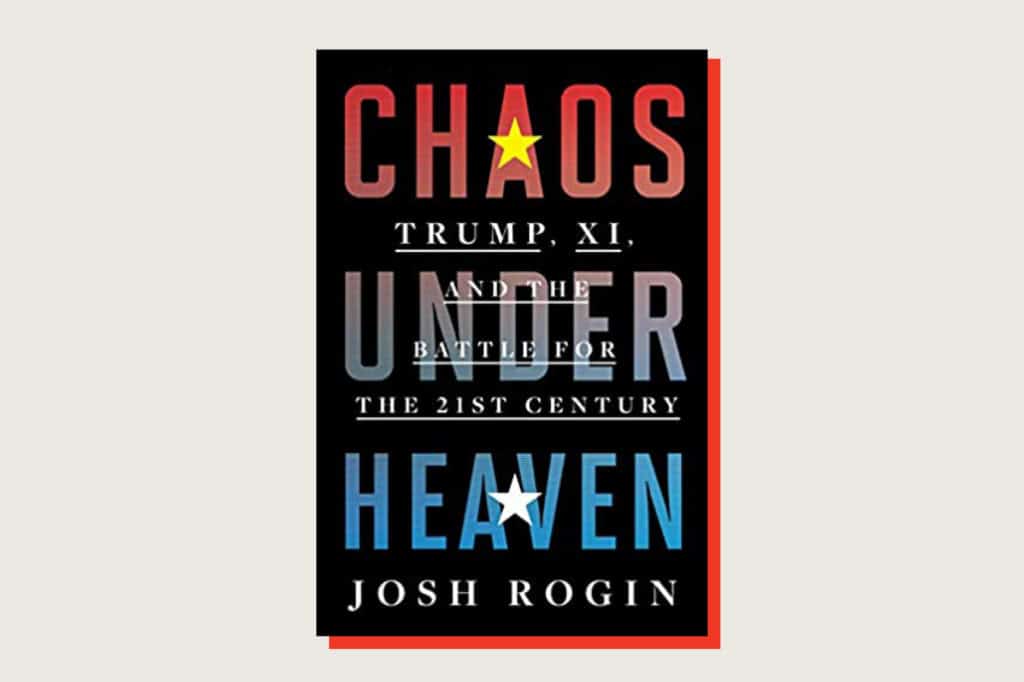

By Dan Murphy
When President Donald Trump and his economic advisors Peter Navarro and Steve Bannon were sounding the alarm about the Chinese Communist Party and their aggressive economic tactics from 2016-2020, most of the country didn’t listen. Perhaps they didn’t respect Trump enough to believe anything coming out of his mouth.
But a recent tirade by HBO host Bill Maher, and a book by Washington Post reporter Josh Rogin, give the American people some of the same commentary that we heard from Trump and Co. about China. Will the American people listen more to a progressive liberal talk show host, and a journalist for one of the two most respected newspapers in the country about China and the Chinese Communist Party?
The one caveat to this discussion, during a time when Asian-Americans are being unfairly targeted and attacked in our country, is that any disagreements we may have over trade, the environment and religion is with the government of China, the Chinese Communist Party, (CCP), and not the Chinese people, and the millions of Chinese Americans who live in this country, and are good, decent, family oriented and hardworking Americans.
On his, Real Time with Bill Maher show on March 12, Maher said, “We all know China does bad stuff, they break promises on Hong Kong, they put the Uyghur’s in camps and punish dissent. We don’t want to be that, but there has to be somewhere between an authoritarian government that tells its people what to do, and a representative government that can’t do anything at all.”
“In two generations, China has built 500 cities from scratch, moved the majority of their huge population from poverty to the middle class, and has cornered the market on 5G and pharmaceuticals.
“In China alone, they have 40000 Kilometers of high-speed rail, we have none… We have been having infrastructure week every week since 2009 but we never do anything…Even if we all agree on something, like eliminating the penny, nothing ever moves in this country. We fight about it, litigate it and then write a bill with a half ass solution that doesn’t kick in for 10 years.”
“China sees a problem and they fix it; they build a dam—we debate what to re name it. In San Francisco it took 10 years to get 2 bus lines through environmental review…China once put up a skyscraper in 19 days…When COVID hit, they built a quarantine center in 10 days with 4000 rooms.”
“We’re not losing to China…We lost, the returns just haven’t all come in yet. They’re eating our lunch,” said Maher.
In his book, Chaos Under Heaven: Trump, Xi, and the Battle for the Twenty-First Century, Washington Post columnist Josh Rogin warns Americans that the US-China-CCP relationship “is the most important foreign policy issue in the world.”
“I’m not a democrat and I’m not a republican, I’m a foreign policy guy, and when everyone was going Russia, Russia, Russia, I told my bosses that I wanted to go China, China, China and focused on that story. Russia is the declining power and China is the rising power. One of the themes of the book is that this is the most important issue in the world and the US-China relationship is the most important relationship in the world, and how do we deal with a rising China that’s internally repressive, internally aggressive and interfering in free and open societies across the board?” said Rogin in an interview on the War room Podcast.
Rogin begins the book by reviewing China’s preparation for a new President in 2016 by having CCP officials meeting with Obama officials, who are confident that Hillary Clinton will be the next President. Three weeks later, the same Chinese officials are meeting with Trump officials, including Navarro and Bannon, who are already taking a tough stance on China, trade and the relationship between the world’s two Superpowers.
Rogin reviews what the Trump administration tried to do to push back against the CCP’s economic dominance, and sounds the alarm to try and wake up the American people to the dangers of doing nothing, while the CCP. “This book is about how the US shifted to a more competitive and confrontational China policy.”
Rogin hopes that his book will help Americans come to a moment “when they realized that the grand strategic competition between the United States and China was the most important foreign policy issue in the world. . . . Many also said this was an awakening to the aggressive and malign character, behavior, and strategy of China’s leadership: the Chinese Communist Party.”
Rogin’s book points out the deficiencies in Trump’s administration and the five different views from advisors and cabinet members about how to deal with China, and how those conflicts, and not a specific, targeted policy towards China, created conflict in Washington DC, and in negotiations with Beijing.
Both Bill Maher and Josh Rogin are not afraid to voice their opinions about China, and the CCP’s influence on American society, even if those views are similar to those voiced by Trump administration officials in the past. The question that the American people need to ask themselves is, can we separate a thoughtful analysis on China from the views of a unpopular ex-President?





